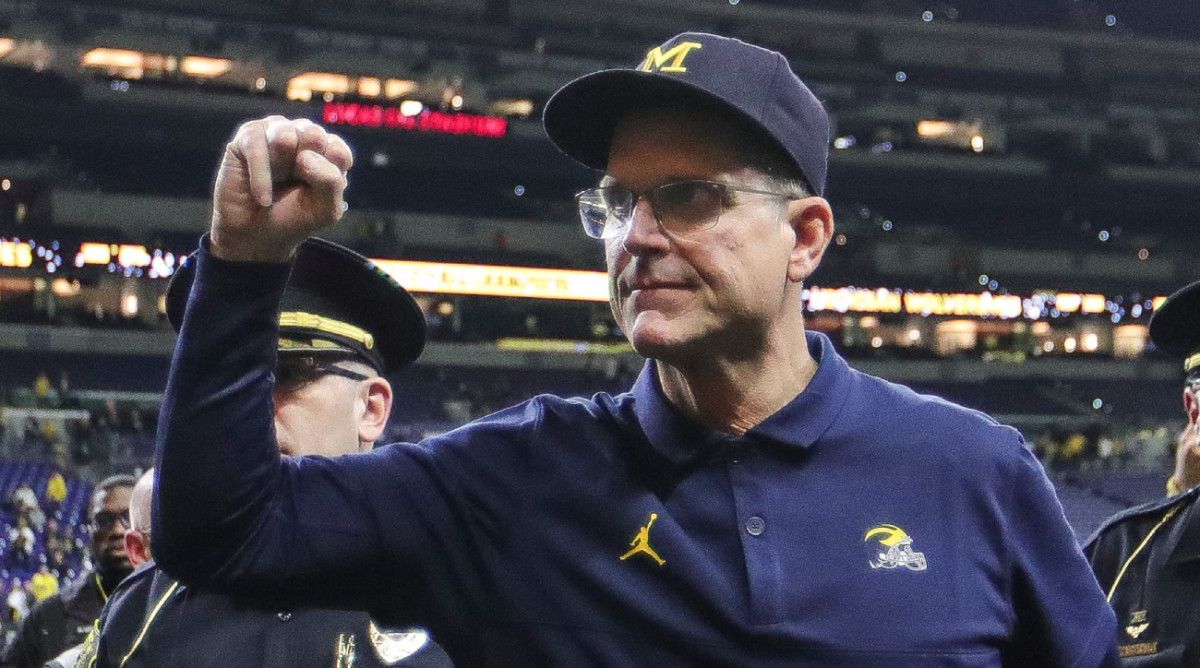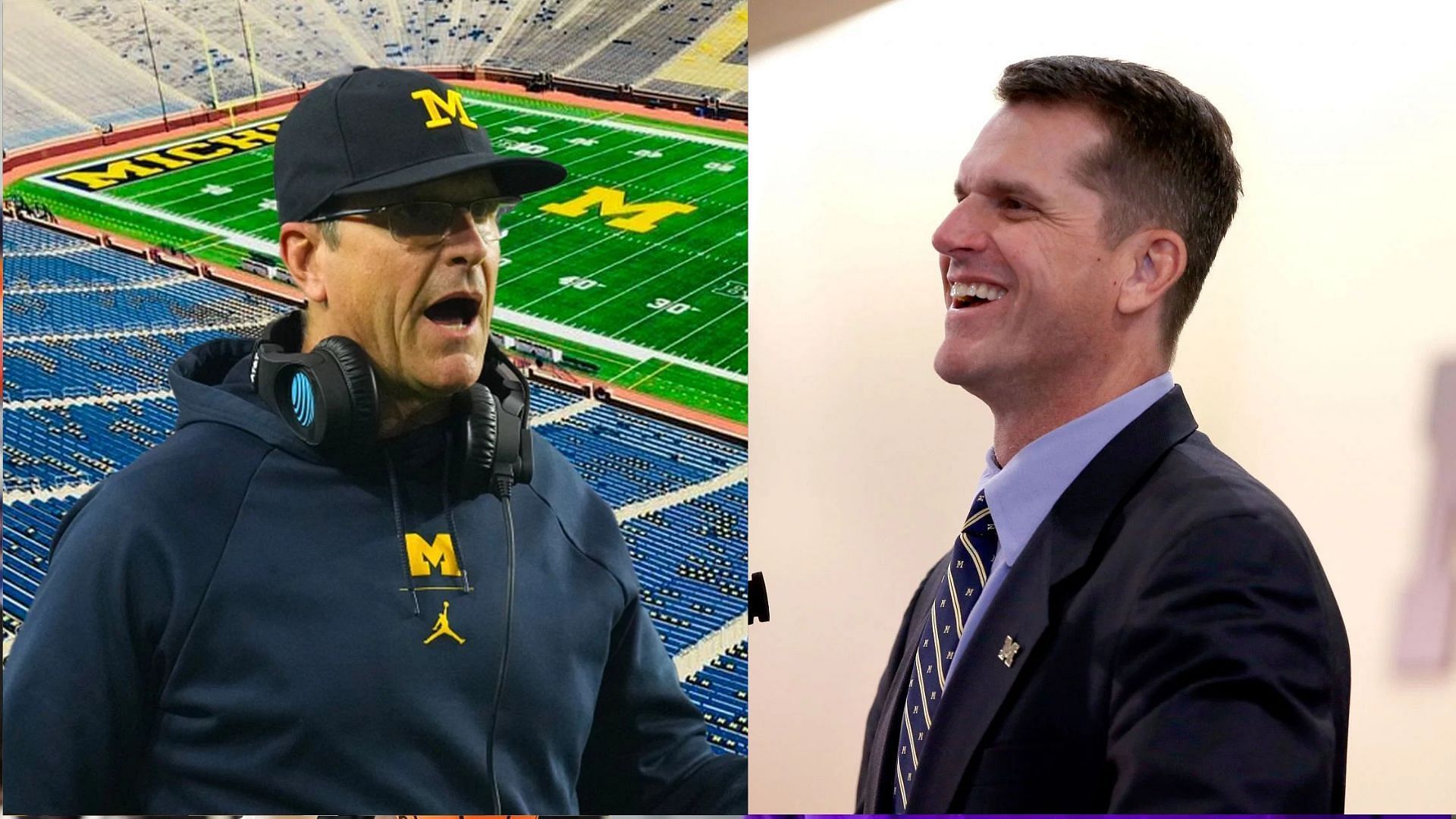The whispers started subtly, a low hum in the background noise of the NFL offseason. Then, the murmurs grew louder, fueled by cryptic tweets and anonymous sources. Now, the bombshell has dropped: Jim Harbaugh, the architect of Michigan’s recent resurgence, is reportedly leaving Ann Arbor for the bright lights of Los Angeles, inking an unprecedented eight-year, $80 million deal with the Chargers. This isn’t just a coaching change; it’s a seismic shift in the landscape of the NFL, a bold gamble by a franchise hungry for a Super Bowl, and a testament to Harbaugh’s enduring appeal and undeniable coaching prowess.
The sheer magnitude of the contract is staggering. $80 million over eight years represents a significant investment, placing Harbaugh among the highest-paid coaches in the league. This isn’t simply a reflection of his recent success at Michigan, where he revitalized a program long mired in mediocrity, leading them to multiple Big Ten titles and appearances in the College Football Playoff. It’s a recognition of his proven track record in the NFL, a career that, despite its complexities, showcases a unique blend of offensive innovation and defensive tenacity.
His time with the San Francisco 49ers, from 2011 to 2014, remains a high watermark in his career. He transformed a struggling franchise into a perennial contender, leading them to three NFC Championship games and a Super Bowl appearance in 2013. While the Super Bowl loss to the Baltimore Ravens remains a sore point for some, it shouldn’t overshadow the remarkable turnaround he orchestrated in San Francisco. He instilled a winning culture, demanding discipline and accountability from his players, fostering a team identity that resonated both on and off the field. The 49ers under Harbaugh were known for their physicality, their relentless pursuit of victory, and their unwavering belief in their coach’s vision.
However, the narrative surrounding Harbaugh’s departure from San Francisco is complex and often contentious. Reports of clashes with the front office, disagreements over personnel decisions, and a perceived lack of communication contributed to a fractured relationship that ultimately led to his dismissal. This period serves as a cautionary tale, highlighting the importance of effective communication and collaboration between a coach and the organization’s leadership. The Chargers, acutely aware of this history, will undoubtedly be working diligently to ensure a smoother, more collaborative relationship with Harbaugh this time around.
The Chargers’ decision to invest so heavily in Harbaugh speaks volumes about their ambition and their belief in his ability to lead them to sustained success. They’ve been a team of tantalizing potential, boasting a young, dynamic roster led by quarterback Justin Herbert, a player widely considered one of the league’s brightest stars. However, they’ve consistently fallen short of expectations, plagued by inconsistency and a lack of playoff success. Harbaugh’s arrival represents a significant shift in their approach, a commitment to building a winning culture from the ground up.
The $80 million price tag is a statement of intent. It signals a willingness to invest in excellence, to prioritize winning above all else. It’s a message to the rest of the league, a declaration that the Chargers are serious contenders, ready to compete for a Super Bowl. This investment also carries significant risk. The NFL is a volatile landscape, where fortunes can change quickly. Injuries, unexpected setbacks, and the ever-present challenge of maintaining a high level of performance can derail even the most meticulously crafted plans.
The success of this gamble hinges on several factors. First, the compatibility between Harbaugh and the Chargers’ front office is crucial. Open communication, mutual respect, and a shared vision for the future are essential ingredients for a successful partnership. Second, Harbaugh’s ability to adapt his coaching style to the NFL’s evolving landscape will be paramount. The game has changed significantly since his last stint in the league, and his ability to embrace new strategies and technologies will be key to his success.

Third, the development of Justin Herbert under Harbaugh’s tutelage will be a critical factor. Herbert possesses exceptional talent, but he needs a coach who can guide him to the next level, helping him refine his skills and elevate his game to championship caliber. Harbaugh’s reputation for developing quarterbacks is well-established, and his ability to work with Herbert will be a major determinant of the Chargers’ success.
Finally, the overall team chemistry and culture will play a significant role. Harbaugh’s demanding style can be both a blessing and a curse. While it can inspire players to reach their full potential, it can also lead to friction and conflict if not managed effectively. The Chargers’ front office will need to ensure that the team environment is conducive to Harbaugh’s coaching style, fostering a culture of accountability and mutual respect.

The Inside Jim Harbaugh’s $80 Million Deal With the Los Angeles Chargers saga is far from over. This is just the beginning of a new chapter, a bold experiment with potentially enormous rewards – or devastating consequences. The coming seasons will be a fascinating test of Harbaugh’s coaching acumen, the Chargers’ organizational prowess, and the resilience of a franchise determined to break through and claim its place among the NFL’s elite. The $80 million investment is a bet on the future, a gamble on a coach who has proven his ability to win, but also a coach whose past carries both triumphs and controversies. The outcome remains to be seen, but one thing is certain: the NFL just got a whole lot more interesting.


